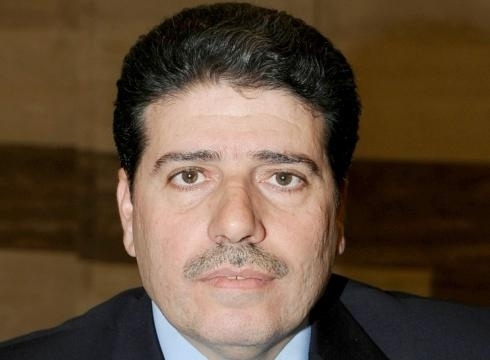In brief
Halqi is a member of Assad's ruling Baath party and hails from the southern city of Daraa, the birthplace of the Syrian uprising.
The 50-year-old held the post of Secretary General of the Daraa Baath Party branch from 2000-2004. He was appointed head of the doctors' syndicate in 2010.
Halqi is believed to have few political credectials for for the post of prime minister, but the fact that he comes from Daraa province, the city which launched the spark of the Syrian Revolution in March 2011, is understood to be important in his appointment in order to give a public impression that this province does not stand completely with the Syrian revolution.
Background
Wael Halqi hails from the city of Jassem in Daraa province in the south of the country, where hundreds of people lost their lives since the early days fo the uprising and which still receives daily airstrikes by the Assad regime.
Halqi was born in 1964. His father was an employee in the Central Commission for the Supervision and Inspection. He is married and has a four children, one girl and three sons.
Halqi graduated from the Faculty of Medicine at the University of Damascus in 1987. In 1991 he obtained a master's degree in surgery, gynecology and obstetrics, later serving as a Director of Primary Health Care in the city of Jassem from 1997 to 2000 before becoming the Secretary of the Baath Party in Deraa from 2000 to 2004. In 2010 he became the head of the doctors syndicate in Syria, then became a Minister of Health before being appointed in August 2012 as Prime Minister, a few days after the defection of the former Prime Minister Riad Hijab.
False achievements
Despite the bright slogans launched by Halqi's government, such as "fighting corruption, reconstruction, economic development, restoration of security", his government has been unable to deliver on any of it.The economic and security situation has worsened, while unemployment is still at the highest level. Meanwhile routine corruption, and the spread of nepotism, bribery and lack of discipline in the performance of ministries and in the state institutions continues. All this comes at a time when the official media is working hard to polish Halqi's image and present his ministry as the country's saviors. Cameras have followed Halqi in his work in an attempt to show the government operating normally, which is far from the truth.
Assassination attempt and his family disown him
On 29 April 2013 Halqi survived an assassination attempt on his motorcade in the Mezzeh district of the capital Damascus. The driver was killed and there was massive destruction of a large number of buildings around the site of the blast, which the Free Syrian Army claimed responsiblity. This assassination attempt led to more limits on Halqi's movements as well as increased security around him. A recent explosion in the upscale neighborhood of Mazzeh — where many senior officials live — appears to be the latest attack targeting top officials in Assad's regime.The attack on Halqi's convoy came a week after Ali Balan, the government’s chief coordinator of emergency aid distribution, was killed by gunmen with silencer-equipped guns at a restaurant in the same neighborhood. State television said that "the terrorist explosion in Mazzeh was an attempt to target the convoy of the Prime Minister. Doctor Wael al-Halqi is well and not hurt at all." The Syrian Observatory for Human Rights, a UK-based activist group, said Halqi's bodyguard was killed. Halqi himself conducted a brief interview with state television in which he appeared shaken but assured the public he was unhurt.
A few months earlier, Halqi's tribe issued a statement saying that they disowned Halqi, considering his acceptance of the position as confirmation of his love of money, power, prestige, and his denial of the sacrifices of his family during his role with the regime, which they said was trying to destroy the structure and fabric of Syrian society.
It was no surprise that Halqi was mandated to form the government as an extension of Assad's power grab through a sham elections described by western countries as a "farce" earlier in the year.
Many Syrians believe that the first Government headed by Halqi was "tasteless" as many described, it failed to bring any changes in Syrian society, It also puts an end to some rumors that spreads in some circles about the possibility of mandating an opposed figure or at least a close to the opposition figure with this task.


